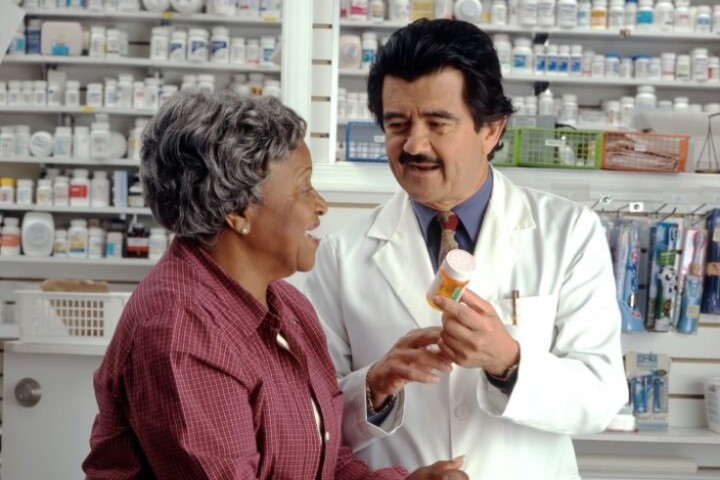Every 10th of September we celebrate the world suicide prevention day. This is followed closely by the world mental health day on the 10th October. There is no gainsaying that there is “ NO HEALTH WITHOUT MENTAL HEALTH”. No wonder the WHO defined HEALTH as a state of complete physical, mental and social well-being and not merely the absence of disease or infirmity while MENTAL HEALTH is defined as a state of well-being in which an individual realizes his or her own abilities, can cope with the normal stresses of life, can work productively and is able to make a contribution to his or her community.
From the definition of HEALTH we can say that:
Mental health is more than the absence of mental disorders
Mental health is an integral part of health; indeed, there is no health without mental health.
Mental health is determined by a range of socioeconomic, biological and environmental factors.
Cost-effective public health and intersectoral strategies and interventions exist to promote, protect and restore mental health.
Our mental health is central to our ability to think, interact with each other, earn a living, express ourselves and enjoy life both collectively and individually. Mental Health should be a vital concern of individuals, communities and societies throughout the world. It is therefore our collective responsibility to promote and protect our mental wellbeing.
Determinants of mental health
Several individual, social and structural determinants may protect or destabilize our mental health and may swing our position on the mental health continuum. Certain personal, psychological and biological factors such as poor emotional skills, substance use and genetics can increase the vulnerabilities to mental health problems. Also, exposure to unfavourable social, economic, geopolitical and environmental circumstances such as poverty, violence, threats to life and communities, economic downturns, disease outbreaks like COVID 19 and EBOLA, humanitarian emergencies, forced displacement and growing climate crisis, inequality and environmental deprivation also increase the risk of experiencing mental health conditions. These risks can also occur at all stages of life, but those that occur during developmentally sensitive periods, especially early childhood like child abuse in harsh parenting, physical punishment and bullying which are the leading risk factor for mental health conditions, are particularly detrimental.
Just as in the risks, we also encounter mental health protective factors throughout our lives and they serve to strengthen our resilience. These protective factors include individual social and emotional skills and attributes as well as positive social interactions, quality education, decent work, safe neighbourhoods and community cohesion, among others.
It is important to note that most people who are exposed to the risk factors do not develop mental health condition and those without a known risk factor still develop a mental health condition. Nevertheless, the interaction of the above mentioned determinants of mental health can enhance or challenge our mental health.
Mental health promotion and prevention
We can promote our mental health and prevent mental disorders by identifying the individual, social and structural determinants of mental health, intervening to reduce the risks, build resilience and establish supportive environments for mental health.
To manage mental disorders, multisector interventions designed for individuals, specific groups or whole populations are always the best approach. Collaborations of all the parastatals like education, labour, justice, transport, environment, housing, and welfare sectors beyond the health sector are needed. Promotion and prevention efforts should include advocacy and multisectoral collaboration and coordination.
HOW TO STAY MENTALLY HEALTHY
- Stay physically and socially active; learn to laugh with others
- Get a Hobby; find something creative, an outlet that you want to do just for yourself
- Be self-reflective; examine where you are in life, where you’ve come from. Be honest and complimentary to yourself
- Play devoting time to just having fun can recharge your battery, revitalize your social networks and reduce stress/ anxiety
- Maintain healthy diet
- Take a break
- Avoid alcohol and avoid cigarettes and other drugs
- Set realistic goals and celebrate your success
- Accept who you and do not blame others for your problems
- Talk about your feelings and do not be afraid to seek help and Care for others
To commemorate this year World Mental Health Day, the World Health Organization has declared that we should ‘Make mental health and wellbeing for all a global priority‘
Dr Oluwatoyin A. Fasesan
Consultant Psychiatrist
Babcock University Teaching Hospial, Ilishan Remo, Ogun State, Nigeria
Email: fasesano@babcock.edu.ng
- CDC. High Blood Pressure Symptoms and Causes | cdc.gov. Centers for Disease Control & Prevention. Published 2021. Accessed June 26, 2022. https://www.cdc.gov/bloodpressure/about.htm
- Whelton PK, Carey RM, Aronow WS, et al. 2017 ACC/AHA/AAPA/ABC/ACPM/AGS/APhA/ ASH/ASPC/NMA/PCNA guideline for the prevention, detection, evaluation, and management of high blood pressure in adults a report of the American College of Cardiology/American Heart Association Task Force on Clinical practice guidelines. Hypertension. 2018;71(6). doi:10.1161/HYP.0000000000000065
- WHO. Hypertension WHO. Hypertension. Published 2021. Accessed June 27, 2022. https://www.who.int/news-room/fact-sheets/detail/hypertension
- Mills KT, Bundy JD, Kelly TN, et al. Global disparities of hypertension prevalence and control. Circulation. 2016;134(6). doi:10.1161/CIRCULATIONAHA.115.018912
- WHO. More than 700 million people with untreated hypertension. World Health Organization and Imperial College London joint press release. Published 2021. Accessed June 27, 2022. https://www.who.int/news/item/25-08-2021-more-than-700-million-people-with-untreated-hypertension




